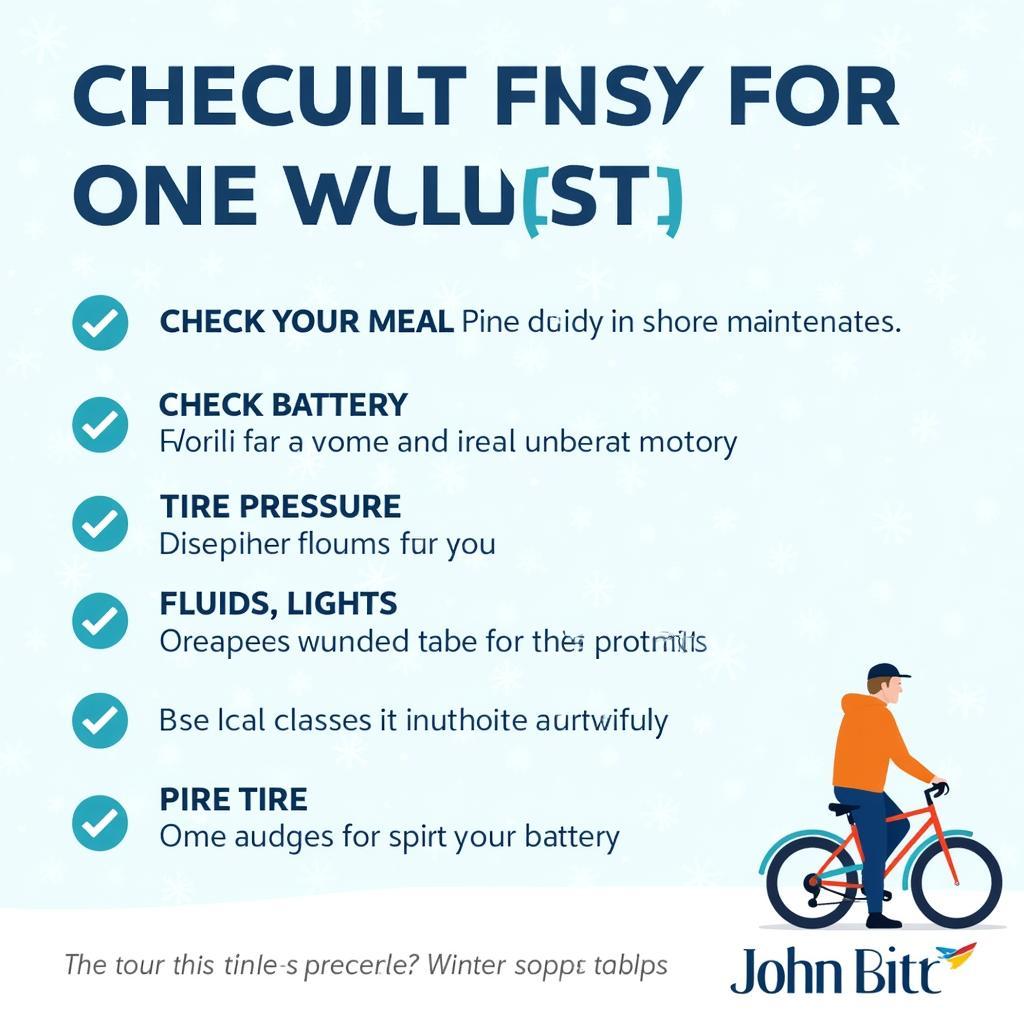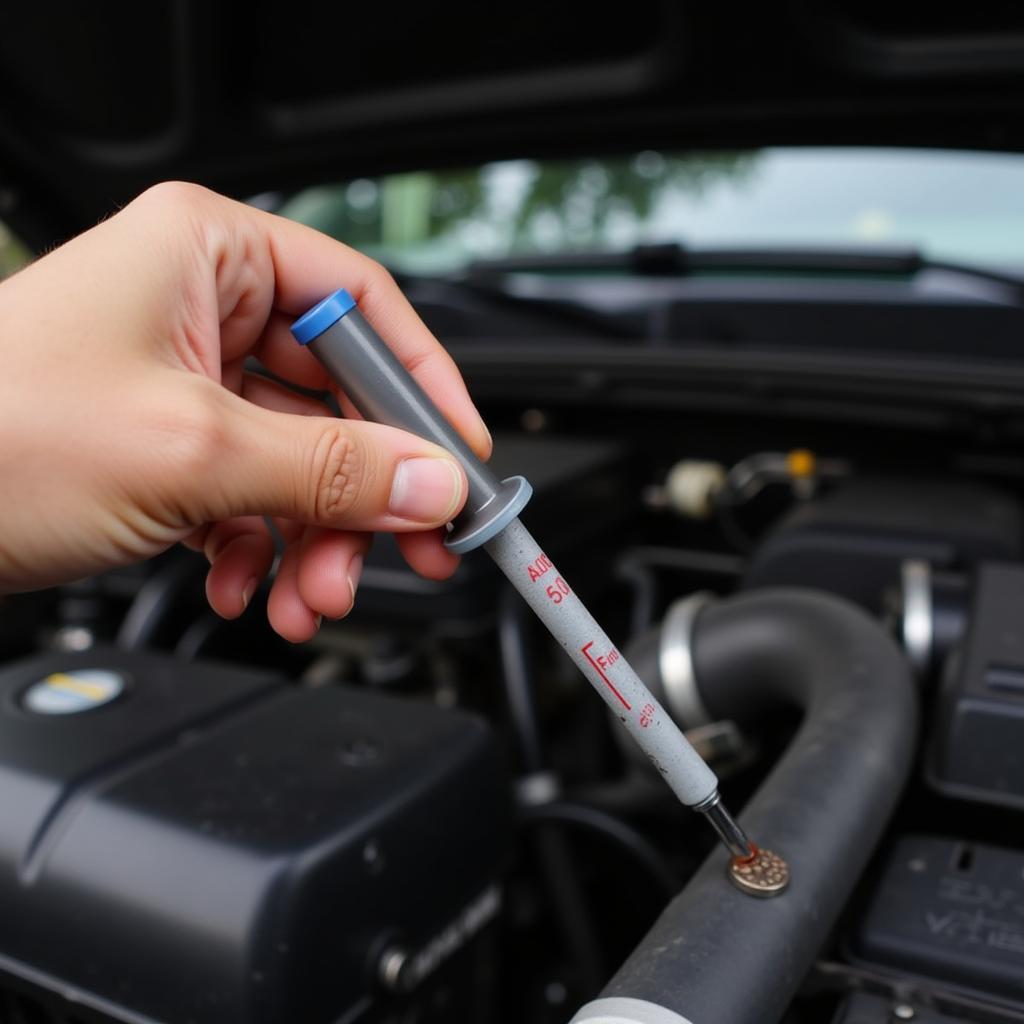Winter can be a tough time for your car, with cold temperatures, snow, and ice creating unique challenges. While regular car maintenance is crucial throughout the year, it’s especially important during the winter months to prevent unexpected breakdowns. This guide will cover the most common car problems you might encounter in winter and how to address them.
Battery Issues: The Cold Weather’s Biggest Threat
One of the most common winter car problems is a dead battery. Cold temperatures reduce battery capacity, making it harder to start your car. A weak battery is often the culprit, and can leave you stranded in the cold.
Here are some tips to prevent battery problems:
- Get a Battery Check: Have your battery tested by a mechanic at least once a year, preferably before winter.
- Keep Battery Terminals Clean: Corrosion can build up on the battery terminals, hindering power flow. Clean them with a wire brush and apply a protective grease.
- Charge Your Battery: If you haven’t used your car in a while, especially during prolonged cold spells, charge the battery.
- Avoid Short Trips: Short trips don’t allow the battery to fully charge. Consider driving for longer durations or using a battery charger if you frequently make short trips.
Expert Insight:
“Cold weather can wreak havoc on a car battery’s performance. It’s crucial to proactively check the battery’s health and take steps to ensure its optimal performance,” shares Michael Anderson, a veteran automotive technician with over 20 years of experience.
Engine Trouble: From Starting Issues to Performance Loss
Winter can also lead to engine issues, including difficulty starting, rough idling, and a loss of power.
Here are some possible causes and solutions:
- Frozen Fuel Lines: Cold temperatures can cause fuel to thicken, making it difficult for the engine to draw fuel. To prevent this, use winter-grade fuel.
- Clogged Air Filter: A dirty air filter restricts airflow to the engine, impacting performance. Replace it regularly.
- Frozen Engine Coolant: Anti-freeze is crucial for preventing engine damage in freezing temperatures. Make sure you have the right mix of antifreeze and water in your coolant system.
Expert Insight:
“Even if your car starts and runs, it’s important to be aware of any changes in engine performance during winter,” advises Maria Rodriguez, a certified automotive mechanic specializing in winter car maintenance. “Pay attention to unusual noises or hesitation, and address them promptly.”
Tire Troubles: From Traction Loss to Flat Tires
Winter conditions demand proper tire care. Worn tires, low tire pressure, and unsuitable tires can lead to various issues.
Here’s what you need to know:
- Tire Pressure: Cold weather lowers tire pressure. Check and adjust tire pressure regularly, especially before long drives.
- Tire Tread: Worn tires have reduced grip, increasing the risk of skidding. Replace tires with worn tread, especially in snowy or icy conditions.
- Winter Tires: If you live in an area with heavy snow or ice, consider investing in winter tires. They offer superior grip and traction compared to all-season tires.
Expert Insight:
“Maintaining adequate tire pressure is crucial in winter, as it directly impacts traction and safety,” emphasizes David Jones, a seasoned automotive specialist with expertise in winter tire technology. “Don’t compromise on safety – always prioritize having the right tires for your driving environment.”
Wiper and Defroster Problems: A Clear View is Essential
Winter conditions often bring snow, sleet, and heavy fog. A functional windshield wiper and defroster system are vital for visibility and safety.
Here’s how to ensure proper operation:
- Wiper Blades: Winter weather can damage wiper blades, leading to streaking or poor performance. Replace worn-out blades for optimal visibility.
- Defroster: A malfunctioning defroster can leave your windshield fogged up, obstructing your view. Check the defroster for proper function and make sure the air vents are clear.
- Windshield Washer Fluid: Use winter-grade windshield washer fluid, as it’s designed to resist freezing and prevent damage to your system.
Expert Insight:
“A clear windshield is non-negotiable in winter,” says Emily Carter, an automotive expert focusing on winter car safety. “Regularly inspect and maintain your wipers, defroster, and washer fluid for optimal visibility and peace of mind.”
Other Winter Car Problems: A Comprehensive Checklist
Beyond the common issues discussed above, other winter car problems may arise. Be prepared for:
- Frozen Door Locks: Apply de-icer or use a hairdryer to thaw frozen locks.
- Frozen Fuel Filter: If your fuel filter freezes, the engine won’t receive fuel. Consider using a fuel line heater or a de-icer.
- Exhaust System Issues: Snow and ice can accumulate in the exhaust system, potentially leading to blockage.
- Electrical Problems: Extreme cold can cause electrical components to malfunction.
Expert Insight:
“Winter can introduce a variety of unexpected car issues. It’s essential to have a basic understanding of potential problems and how to address them,” advises Robert Williams, a seasoned automotive technician specializing in winter car maintenance. “Staying proactive and prepared can save you a lot of hassle and ensure a smooth winter driving experience.”
 Car Maintenance Checklist for Winter
Car Maintenance Checklist for Winter
Conclusion: Keep Your Car Ready for Winter
Winter driving presents its unique challenges, but a well-maintained car can help you navigate the season safely and comfortably. By addressing common problems and taking preventive measures, you can ensure a trouble-free winter driving experience.
Need assistance with your car? Contact us today!
AutoTipPro is here to help you keep your car running smoothly throughout the year. We offer a wide range of services, from routine maintenance to complex repairs.
Contact us today!
Phone: +1 (641) 206-8880
Office: 500 N St Mary’s St, San Antonio, TX 78205, United States
FAQ:
1. What are the signs of a failing car battery?
Common signs include slow cranking, dimming headlights, and difficulty starting the engine, especially in cold weather.
2. How can I prevent my car from freezing in the winter?
Use winter-grade fuel, ensure proper antifreeze levels in your coolant system, and protect your car from exposure to extreme cold when possible.
3. What should I do if my car gets stuck in the snow?
First, stay calm and assess the situation. Try using a shovel to clear snow and ice from around the tires. If necessary, use a set of tire chains or a tow strap to gain traction.
4. Why do I need to use winter windshield washer fluid?
Standard windshield washer fluid can freeze in cold weather, damaging your washer system. Winter-grade fluid is designed to resist freezing and prevent damage.
5. How often should I check my tire pressure in the winter?
It’s recommended to check your tire pressure at least once a month, or more frequently if you experience very cold temperatures.
6. How do I know if I need winter tires?
If you live in an area with heavy snowfall or icy conditions, winter tires offer superior grip and traction compared to all-season tires.






Leave a Reply